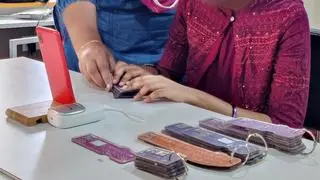Vineet Rai, Founder and Chairman, Aavishkaar Group, a major player in the impact sector, is convinced that the Covid-19 pandemic will result in investing in social enterprises becoming mainstream, overtaking even commercial investing. From returns at all cost, the world’s richest will now insist on resilience at all costs, he asserts.
“The idea that greed is good, is dead. Today, the owners of capital are fearful of losing the money. They are not worried about how much they are earning, they are worried that they should not lose their money.
“They are seeing risk in a different way. The world right now is focussed on the word resilience. Resilience over return,” he says.
A wake up call
The Aavishkaar group, one of the early players in the social sector in the country, has various businesses that deal with social entrepreneurship, microfinance, impact investing, venture investing, fintech lending and SME financing. It is present in India, South-east Asia and Africa. For the owners of capital – the wealthy individuals who account for less than 1 per cent of the world’s population – who decide where the money will be deployed and how much returns they should expect, the pandemic that has shut down global economies has come as a rude wake up call.
“The people who take decisions on money, their preference will move from money at all cost, returns at all cost to resilience in the world at all cost. Therefore, resilience will trump returns. And, resilience with returns will become the best-case scenario,” says Vineet.
The emphasis will be on making sure that the world survives so that money continues to survive. If it can generate some returns, well and good. “That will be the key driver going forward. In this, impact investing will become mainstream,” he adds.
In such a scenario, according to him, topics such as climate, energy, environment, health and hygiene, water, inequity and poor will all become critical in the decision-making process. The world economic architecture will change, asserts Vineet, not because people will become more conscious, but because they are more fearful of the unknown.
The impact sector, he points out, was created to correct the mainstream. All commercial capital was being deployed in ventures that promised high returns with the result that those at the base of the pyramid were ignored. Impact or social enterprises came up exactly to provide for these people. Compared with the high returns that commercial capital assured, the returns from impact investments were more modest, but it took care of the really needy.
Impact, says Vineet, was never supposed to be mainstream. The belief was that poor people remained poor simply because rich people did not want to engage with them.
“We wanted to take the capital to engage with those so that poor people have a source of income and their source of income allows them a certain level of lifestyle,” adds Vineet. That is why Aavishkaar went to States such as Bihar, Jharkhand and Odisha.
He refers to workers from Uttar Pradesh, Bihar, Jharkhand and West Bengal walking in large numbers covering hundreds of kilometres to reach their homes and wonders why they should face such a plight in the first place.
They had proved their resilience and mental strength by wanting to walk back when their life was disrupted by the pandemic. Entrepreneurship is all about mental strength, capability and resilience. If only the migrant workers had access to capital, they had all that was needed to make good of it.
“Now the world has laid bare that these are the best, the brightest of the poor States of India. We will have to find them and give them lots of money so that they can start businesses from where they come from,” says Vineet.
“For that to happen,” he adds, “large amounts of capital has to go to this exceptional population that has the ability and the resilience to walk back. That is really what the change that is going to happen in India.” According to him, because social enterprises largely come under the category of essential services, most of the businesses Aavishkaar has backed are up and running.
Some were down, but were picking up. The microfinance business has started lending activities, though its profits will be down this year, which is only to be expected.
“We see a massive positive surge for Aavishkaar group and believe the next decade belongs to us. Not because we were smart, it is just that the world changed dramatically,” says Vineet.
Fund-raising plan
The Aavishkaar group was close to announcing a large fund raise, but that has been put off for now. “If everything goes right, over the next 18 months, we might have to raise close to, between equity and debt, a billion and a billion-and-a-half dollars. That is for investing across geographies we are present in,” says Vineet.
In another decade, the world will be a much changed place. It will be a world focussed on sustainability and sustainability will be at the centre of every decision made, according to Vineet.








Comments
Comments have to be in English, and in full sentences. They cannot be abusive or personal. Please abide by our community guidelines for posting your comments.
We have migrated to a new commenting platform. If you are already a registered user of TheHindu Businessline and logged in, you may continue to engage with our articles. If you do not have an account please register and login to post comments. Users can access their older comments by logging into their accounts on Vuukle.